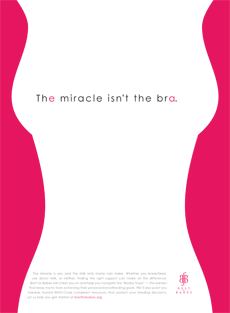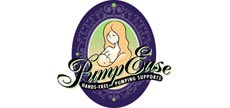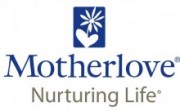By now you may have read the latest sensationalist headline suggesting that six months of exclusive breastfeeding ”could harm babies,” according to the U.K.’s Guardian, which reported on a study in the British Medical Journal. The point of the study in the BMJ was to question the timing for the introduction of solid foods, and argue against the widely recommended 6 months of exclusive breastfeeding with no other solids or liquids. Fortunately, the Unicef UK was on the ball, and issued an excellent rebuttal, which is well worth reading.
You would think that Unicef’s response should put the issue to rest. Sadly, this won’t be the case, because the number of articles that are spinning off the Guardian’s sensationalist headline will far outnumber any visibility or publicity that Unicef’s response can get. The media has figured out that breastfeeding is a hotter-than-lava issue and gleefully jumps on the opportunity to stir up controversy and strike more fear into the hearts of moms, all in the interest of hits and comments. What is unfortunate is that many people won’t even read the full article, they will just interpret these headlines as proof that breastfeeding isn’t all that it is cracked up to be, and that it is okay to wean babies completely off breastmilk before 6 months. Most people will miss that even the authors of the BMJ study were NOT recommending early weaning, because to the average mother-in-law, expecting mom or physician not trained in the basics of lactation management, the breastfeeding recommendations get a little fuzzy. So that’s the first big booby trap here: sensationalist headings do tremendous damage to breastfeeding continuation.
The second booby trap has been entirely missed as far as I can tell. One of the best reasons for following the WHO / Unicef guidelines as they stand now is that the early introduction of solids can mask breastfeeding problems. Suppose a baby is going through a growth spurt, or it’s the holidays and mothers are rushing around, and accidentally missing a feeding here and there without realizing the ramifications. Suppose there is an underlying condition where the mother’s milk supply has dropped, and she tells her friends or mother-in-law that her baby is always hungry. Suppose she asks for help from her pediatrician, who is not required to undergo continuing education for breastfeeding. He or she may weigh the baby and rebuke the new mother that “she is starving her baby” and demand that she begin supplementing. Soon she is on a slippery slope of too much supplementation and her milk has dried up altogether, and since no one uncovered the root of the drop in her milk supply, or solved the breastfeeding issue, she thinks that she just didn’t make enough milk or that it wasn’t enough for her baby. That’s how one of the biggest booby traps, the myth of not having enough milk, has taken hold and been perpetuated.
Breastfeeding experts know that each baby is different, and that mothers have finely honed instincts of when their baby is ready for solid food. This is not about adhering to some arbitrary rule. It’s about making sure that breastfeeding is going well FIRST, and fixing any breastfeeding problems or issues before recommending solids.
Finally, Unicef, WHO and IBCLCs know that there is another good reason for recommending a minimum of 6 months: they know from vast experience in working with moms that if you set the bar at 6 months, you’ll get a lot of moms who breastfeed until 5 months. If on the other hand, you set the bar at 4 -6 months for the introduction of solid foods, you will get a lot of moms and some pediatricians who will think it’s okay to introduce cereal at 3 months, and that will REALLY harm a lot more babies. Cereal too early can not only increase the risk of infection and allergies (as per Unicef), but it can also interfere with milk supply. Unfortunately, there are no sexy headlines to be made out of that…though it would be fun to try and think of some!
1/19/2011 Update: We wanted to share this quote from Marsha Walker, RN, IBCLC of the National Alliance of Breastfeeding Advocacy with you:
I find it very interesting that this article has gotten so much press and is coming out at the same time as the US Surgeon General’s Call to Action on Breastfeeding. The BMJ article has no new information and is not even a study. Just a rehash of articles that are weaker than the ones they are criticising from WHO. Most of the BMJ articles are observational and do not clearly point to a need to change current recommendations. Then factor in the new book that was just published titled: “Is Breast Best: Taking on the Breastfeeding Experts and the New High Stakes of Motherhood” by Joan B. Wolf ( 2011, New York University Press). The conclusion of the book mentions the “Call to Action” whose launch is scheduled for Thursday, January 20, 2011 as follows:
”For the time being, the “Call to Action” to increase breastfeeding that the Disease Control and Prevention and the U.S. Department of Health and Human Services’ Office on Women’s Health were to issue in 2010, a project they defined as “an urgent public health priority,” seems as least slightly overwrought. In the overshelming majority of cases, either breastfeeding or formula feeding is a healthy option.”
One wonders about the cluster of bad press for breastfeeding that just happens to being coming out at the same time!!!

 @BestforBabes
@BestforBabes Best For Babes
Best For Babes






This article is infuriating to me. I was sick the entire 9-mo while preg with my son, Ben, yet only when I ingested gluten products. I, myself, am not gluten intolerant, yet my body reacted while I was pregnant with him. Celiac also runs in our family. Therefore, my son was predisposed to this sensitivity in utero, which means that it was not caused by exclusive bf-ing. Again, bf-ing is sabotaged in the media!
I absolutely posted about this on my facebook page although I did not do so nearly as clearly as you did- I simply pointed out that the title of the article as it had been displayed on Yahoo! News called breastfeeding into question. I’ll be sharing your comments with my friends as well!
I saw a leadup to a local news story that said something along the lines of “How long is too long to breastfeed? Why 6 months may be too long and bad for your baby. Tonight at 10″ I was furious just from that and then the channel didn’t run anything about it! I’ve seen so many friends booby trapped by all kinds of ridiculous thing and they were so amazed that I BF until 15 months (despite food allergies and severe thrush). Good Morning America did a nice bit about this “study”, with a very diplomatic, but very pro breastfeeding Dr. The news anchor helpfully pointed out at the end of the interview that 3 of the 4 researchers were given funding by babyfood companies. I was so glad she pointed that out for all the viewers to know!
The article that I read did not suggest that you introduce foods before 6 mos but rather that you introduce them at 6 mos. and more importantly, that the foods that are introduced not be simply purees.
My son started solids at about 5 months, in conjunction with breastfeeding, because he was going nuts for food. I’ve never been attacked by a child so voraciously over bread. (Not that he actually GOT bread for about 2 more months; I didn’t have information on how gumming appropriate foods was okay after all.
I think drawing attention to following a child’s cues — great discussion. Doing so at the detriment of breastfeeding? Not so much.
One additional issue that makes this an even bigger problem in the U.S. stems from definitions. It’s my understanding that the British definition of “weaning” means “introduction of complementary foods,” whereas the U.S. definition is the “cessation of breastfeeding.” HUGE difference! And totally not addressed in any article I’ve seen so far, from either side of the pond.
I breastfed both my boys exclusively for around 9 months, although I was regularly bullied over this by some “healthcare providers”, a number of whom were frankly shocked and told me I should have weaned completely by six months! With my first baby I tried force-feeding him purees from 6 to 9 months before he finally decided he was ready; with my second, I couldn’t be bothered to fight over it and just waited until he grabbed stuff from my plate, and with him we completely skipped the pureed food phase. I had so much support from LLL and other support groups, and this really helped me. Women are really undermined in their autonomy in this area, always being told to consult healthcare providers, a lot of whom don’t know what they’re talking about when it comes to breastfeeding. It’s a lost art and the best people to advise are other mums who have successfully nursed their own kids. My kids are 5 and 3 and they’re doing just fine (and they were were still having mum’s milk until 17 months and around 30 months - which shocked many people!!). Good luck to you breastfeeding mums out there, trust your instincts with your own babies and be confident!
i would just like to quote a section from a great book called “survival of the sickest” by Dr Sharon Moalem. This is in the light of the huge booby trap of iron in baby formula (particularly the follow on stuff) - remember: breast milk is low in iron for a reason, that has evolved for hundreds of thousands of years; formula companies have only been researching for 40-50 years, nature has been researching for millions of years.
“iron is good, iron is good, iron is good.
Well you know that,like just about every other good thing under the sun, when it comes to iron, its moderation, moderation, moderation. but until recently, current medical opinion didn’t recognize that. Iron was thought to be good, so the more iron the better.
A doctor named John Murray was working with his wife in a Somali refugee camp when he noticed that many of the nomads despite pervasive amaemia and repeated exosure to a range of virulent pathogens incuding maleria, TB and Brucellosis, were free of visible infection. he responded to this anomoly by deciding to treat only part of the population with iron at first. sure enough, he treated some of the nomads by giving them iron supplements and suddenly the infections gained the upper hand. the rate of infection in nomads receiving the extra iron skyrocketed. the somali nomads weren’t withstanding these infections despite their anaemia, but because of their anaemia.
35 years ago, doctors in New Zealand routinely injected Maori babies with iron supplements. they assumed that the Maori (indigenous peoples of New Z) had a poor diet lacking iron and that their babies would be anaemic as a result. the Maori babies injected with iron were 7x as likely to suffer from potentially deadly infections including septicemias and meningitus. Like all of us, babies have isolated strains of potentially harmful bacteria in their systems, but those strains are normally kept under control by their bodies. when doctors gave these babies iron boosters , they were giving booster fuel to the bacteria with tragic consequences.
Its not just iron dosing through injection that can cause this blossoming of infection; iron supplemented foods can be food for bacteria too. Many infants can have botulism spores in their intestines (often found in honey, whcih is why this food should be avoided before a year old). If the spores germinate, the results can be fatal. A study of 69 cases of infant botulism in California showed one key difference between fatal and non fatal cases of botulism in babies. Babies who were fed with iron-supplemented formula instead of breast fed were much younger when they began to get sick and more vulnerable as a result. Of the ten who died, all had been fed iron-enhanced formula.”
so next time someone tried to force a mum to give iron enriched formula because the baby might get anaemic or more baby formula funded research like this one whines on about iron levels in babies, remember if it was desirable for survival to have iron in mothers milk nature would have put it there!
Brilliant! Thank you SO much for sharing this.
wow!!!
that’s the thing which I want…totally supportive.
My baby just turned six months old and I am still breastfeeding. It has been a wonderful experience for me. Breast is best!